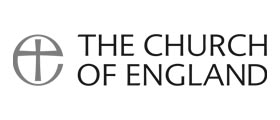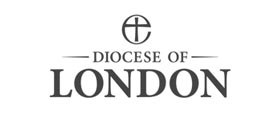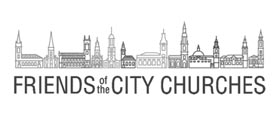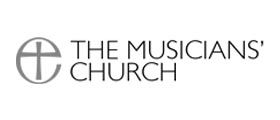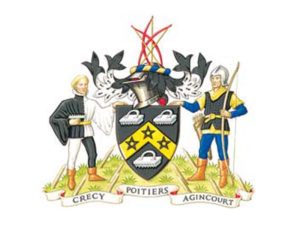
The Worshipful Company of Bowyers
Company Motto – “Crecy, Poitiers, Agincourt”
The Bowyers, makers of bows, received their grant of arms in 1488 and their first Charter in 1621.The motto of the Company celebrates major triumphs on the battlefield of the English archer.
The Company and St Botolph’s
By his will dated 1st August 1625, a member of the Bowyers Livery, James Wood, an Assistant, left his manor of Isley Walton in Leicestershire, to the Company, the income from which, after a payment of a number of charitable donations, was to be used to acquire a Hall for the Company., For what ever reason this was never done and the estate was sold by the Company in 1889. James Wood was buried in the Chancel of the Church of St Nicholas Cole Abbey in 1629.
Unlike other Companies, the Master serves a 2 year term, and every alternate year on the Thursday after St James Day (25th July) on the occasion of the election of the Master and Wardens, the Court and the Livery attend service at the Parish Church of St Nicholas Cole Abbey. The Company continued to attend until 1978 when the Church was made pastorally redundant. The then vicar, the Company’s Chaplain, the Reverend Prebendary Alan Tanner, moved to become the Rector of St Botoloph’s without Bishopsgate and the Company moved with him.
Visit www.bowyers.com for further information
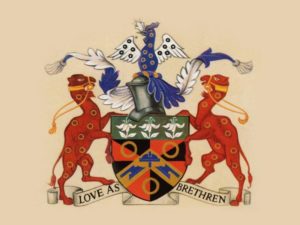
The Worshipful Company of Coopers
Company Motto – “Love as Brethren”
The Royal Charter was granted by King Henry VII in 1501, although the first mention as an ancient craft Guild was in 1298. Before the Reformation the original motto was “Gaude Maria Virgo” – Rejoice, O Blessed Mary.
The craft governed the standard of workmanship in the making of wooden casks used for storage, especially of food and drink.
The Company and St Botolph’s
The Master of the Company is elected annually by the Livery at Common Hall and takes office at the Installation Court Meeting. He presides at all formal and social occasions of the Company, at every meeting of the Court and is, ex-officio, a member of all Committees. The Master represents the Company at all official functions in which the Company participates. The Election Day Service is held at St Botolph without Bishopsgate.
Visit www.coopers-hall.co.uk for further information
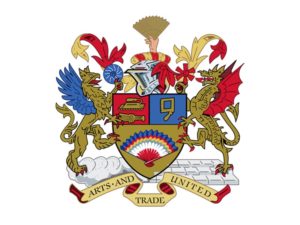
The Worshipful Company of Fanmakers
Company Motto – “Arts & trade united”
The stimulus for the formation of the guild of fanmakers is thought to have been as a result of large numbers of Huguenots flooding into England from France, resulting in the native craftsmen forming themselves into an organised body.
The Edict of Nantes 1598
The Edict of Nantes, issued on April 13, 1598, by Henry IV of France, granted the Calvinist Protestants of France (also known as Huguenots) substantial rights in an essentially Catholic nation. It guaranteed the protection of French Protestants travelling abroad from the Inquisition, and granted them places of safety, which were military strongholds, such as La Rochelle. This act of tolerance was rare in Western Europe, where standard practice forced subjects to follow the religion of their ruler. It reaffirmed Catholicism as the established religion of France, but dealt only with Protestant and Catholic coexistence; it made no mention of Jews, or of Muslims.
The Edict succeeded in restoring peace and internal unity to France, though it pleased neither party: Catholics rejected the apparent recognition of Protestantism as a permanent element in French society and still hoped to enforce religious uniformity, while Protestants aspired to parity with Catholics. This tolerance was wholly dependent on the continued support of the crown.
The Revocation of the Edict of Nantes
However, in October 1685, Louis XIV, the grandson of Henry IV, renounced the Edict and declared Protestantism illegal with the Edict of Fontainebleau. This act, commonly known as the revocation of the Edict of Nantes, resulted in as many as 400,000 Protestants (Huguenots) leaving France, with most moving to Great Britain, Prussia, the Dutch Republic, Switzerland and the new French colonies in North America.
Early Records
Early records of the Fan Makers have been lost, but it is known that a Guild of Fannmakers existed during the reign of Charles II as evidenced by their petition to Parliament in 1670 concerning the threat from the importation of foreign fans. Parliament responded by imposing a duty on imported fans in 1672.
The import of cheap foreign fans remained a cause for serious concern, and a petition was made to Queen Anne for the grant of a charter which established “The Master, Wardens, Assistants and Society of the Art and Mystery of Fannmakers of London and Westminster and Twenty Miles Round.”
Incorporated by Royal Charter on 19th April 1709, the Fan Makers were then able to own property, set up seven-year apprenticeships, and enforce legislation against imported fans themselves, the main and sustained threat to their existence throughout their history. 1991 saw the first grant of Arms to the Company.
The Company and St Botolph’s
After the Second World War, in 1948, Princess Alice, Duchess of Gloucester, became an Honorary Freeman of the Fan Makers’ Company. She opened St Botolph’s Hall, Bishopsgate, in 1952 as the new, permanent Hall for the Company for the next 40 years. In 1992 the Company moved to Skinners’ Hall on Dowgate Hill.
Visit www.fanmakers.com for further information

The Worshipful Company of Leathersellers
Company Motto – “”Soli Deo Honor et Gloria”
“Honour and Glory be to God alone”
The Leathersellers’ Company was founded by Royal Charter in 1444 with authority to control the sale of leather within the City. The Company no longer has this regulatory role, and instead devotes its energies to support for charity, education and the British leather trade.
The Company is governed by an elected Master and three Wardens, and the Court of Assistants, which is a permanent body comprised of senior Liverymen who have served as Master (Pastmasters) and those who have not (Assistants).
The Company elects a new Master and Wardens each summer in a traditional ceremony. In 1507 it was laid down that the date had to be within the 15 days following Corpus Christi (the second Thursday after Pentecost) and this still applies today. Since 1860 it has become customary for it to be held on a Wednesday.
On Election Day the Company’s Court of Assistants meets at the Hall to elect the new Master and Wardens for the ensuing year. The church service beforehand is an opportunity for the Company to gather together and give thanks for the past year, as well as to pray for the Company and its charitable, educational and other activities during the year to come.
The Company’s Beadle leads a formal procession of the Master, Wardens and Assistants in their livery gowns from the Hall to the church, and the choir comprises pupils from the schools the Company support in south London: Colfe’s School and Prendergast Hilly Fields College, now part of the Leathersellers’ Federation of Schools.
The Company and St Botolph’s
The Company has used several churches during its long history ; All Hallows, London Wall until 1543 when the Hall moved to its present site off Bishopsgate and St Helen’s, Bishopsgate, until 2002. In 2003 the Election Day service was held at St Lawrence Jewry, with the Bishop of Oxford as the guest preacher. Then in 2004 the Election Day service was held at St Botolph’s, Bishopsgate, which proved so popular that they have continued to do so for the past seven years. By a happy coincidence the service often coincides with the Feast of St Botolph to make it a double celebration!
Visit www.leathersellers.co.uk for further information



